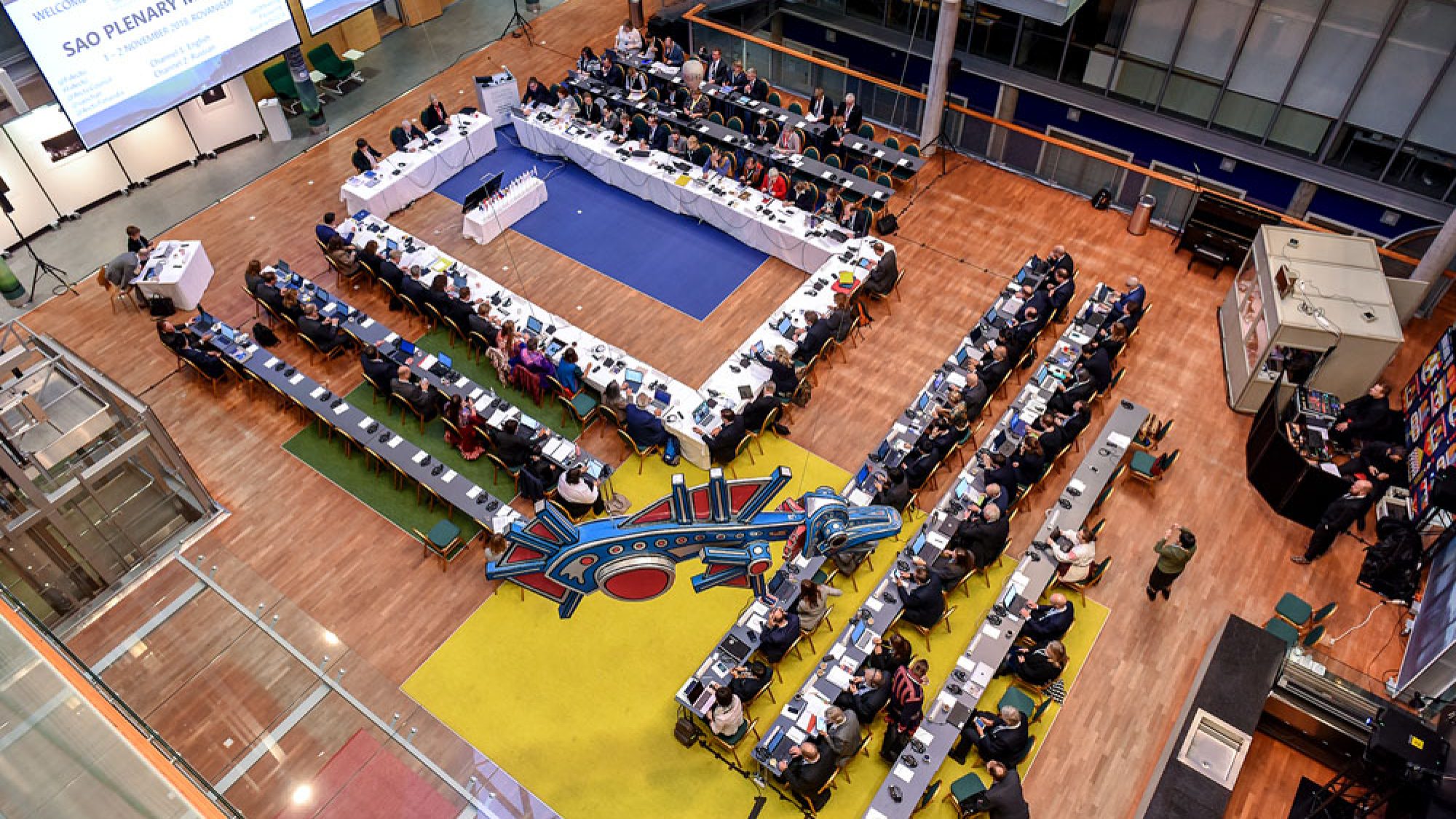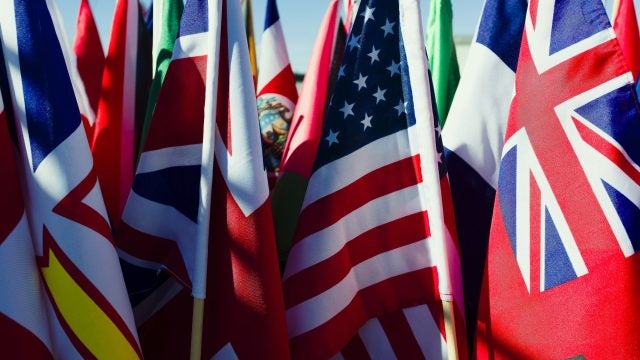
Title: Is It Possible to Continue Cooperating with Russia in the Arctic Council?
Russia’s armed invasion of Ukraine, which began on February 24, 2022, quickly ended all Arctic international cooperation. On March 3, the seven member states (A-7) of the Arctic Council announced their condemnation of Russia’s illegal invasion of Ukraine and that cooperation within the Arctic Council must now be paused, even as Russia serves currently as a chair of the Council. At the same time, the A-7 also expressed the importance of continued Arctic Council cooperation. Russia referred to the decision of the other member states on March 4 as “regrettable,” emphasizing that Arctic Council cooperation should be isolated from tensions elsewhere; the Russian chairmanship also stated that they will continue to implement their program domestically.
During the ongoing pause, the A-7 countries are currently considering how the Council can continue to work together. It is clear in my view that, although Russia currently holds the chairmanship of the Council, other countries should not continue to cooperate with Russia within the Council. This was also stated by the parties to the Barents Euro-Arctic Council, who argued that they have no other choice but to suspend activities involving Russia. It should be remembered that the A-7 have not excluded Russia from the Arctic Council, but that they have only paused their activities in the Council. Still, it is essential that the remaining A-7 countries continue their cooperation in the Arctic, though temporarily without Russia.
In 1996, the eight Arctic states (the five Nordic countries, the U.S., Russia and Canada) established the Arctic Council to promote the protection of the region’s vulnerable environment and sustainable development. Importantly, the indigenous peoples of the region were involved in its activities as its permanent participants.
Cooperation in the Arctic Council developed strongly until the illegal takeover of Crimea by Russia in 2014. In response, Canada, the then chair of the Arctic Council, proposed that the Arctic Council’s cooperation be suspended for the time being, but the other member states believed that this was not necessary—and that the Council could continue its work. Yet, Russia’s actions were already at that time being taken seriously in the EU, the United States, and other Western countries, which imposed sanctions and restrictive measures. In fact, all seven of the other Arctic Council member states sanctioned Russia. The EU also imposed explicit Arctic sanctions and restrictive measures, for example on Arctic oil and gas drilling technology. In addition, Arctic security cooperation with Russia was terminated. Cooperation between the Chiefs of Arctic Defense, which had just begun, ended and Russia withdrew from the wider Arctic Security Forces Roundtable.
Simultaneous cooperation and growing mistrust
Thereafter, there seemed to be two contrasting directions in which the region was developing. The Arctic Council was able to continue and did significant work in several areas of environmental protection and sustainable development; it also developed a way of working where it was able to catalyze legally binding agreements between the Arctic states, including 2011 search and rescue, 2013 oil spill preparedness and response, and 2017 scientific cooperation agreements, despite not being an inter-governmental organization. The Arctic littoral states negotiated a framework for a central Arctic Ocean fisheries agreement, to which those with potential fishing capacity in the region (Iceland, China, South Korea, Japan and the European Union) were also invited. This agreement entered into force in June 2021. In addition, after many years of negotiations at the International Maritime Organization (IMO), a legally binding polar code entered into force in 2017 to regulate Arctic Ocean shipping.
Gradually, however, as the relations between the West and Russia became more and more difficult, the level of ambition of the Council’s work diminished; for instance, the Syrian war, demonstrations in Belarus, and Russia’s withdrawal from disarmament agreements led to a lack of trust between the parties, even though cooperation in the Arctic was continuing. The general restoration of Russia’s military capabilities, reflected in the construction of military bases in the Arctic and the deployment of old Soviet-era bases, was also a challenge for Arctic cooperation. NATO military exercises in the north were usually immediately followed by Russia’s own northern military exercises.
Why is Arctic Council cooperation important?
Central to Arctic international governance is that the Arctic Council continue in some manner. The Council is the only permanent forum for cooperation in the region, and has played an important role in protecting the region’s environment and promoting sustainable development. Climate change is the biggest security problem in the region; the Arctic is warming three times faster than the global average, and the Council’s work to reduce black carbon and methane and to adapt to climate change in the region is very important. The Council is also essential to coordination and action on Arctic issues in the whole of the Arctic together with the indigenous peoples of the region. Although indigenous organizations do not have formal decision-making power in the Council, they need to be consulted, and Arctic states have, in practice, listened very carefully to them. If Arctic indigenous peoples oppose a draft decision, it will not normally move forward.
There has also been long-standing international interest in participating in the work of the Arctic Council as an observer; there are currently thirty-eight observers to the Council and one de facto observer, the EU. The Arctic Council also has over 120 ongoing projects that should be quickly restarted. In addition, its six working groups and other subsidiary bodies are awaiting guidance on how and when cooperation can continue. The Council is also known internationally for its role as a forum that can act as a venue for peaceful collaboration, even if there have been tensions elsewhere between the member states. Just before Russia invaded Ukraine, on February 2, the Council was nominated for the Nobel Peace Prize.
Challenges to Continuing Cooperation
Although the pressure to continue the Arctic Council’s cooperation without Russia is growing, the challenges for this cooperation are great. Without Russia, half of the Arctic disappears from the remit of the Arctic Council, making it difficult to consider the body as representative of the whole region. For this reason, any interim solution to continue the work of the Council with the A-7 needs to take account of the fact that Russia should be involved in this cooperation at some point.
The problem of continuing Arctic Council cooperation is also linked to the indigenous peoples’ organizations that represent these peoples as permanent participants in the Council. Indigenous peoples in Russia are represented by an organization called the Russian Association of Indigenous Peoples of the North (RAIPON), whose leadership was changed by the Russian state and which has already endorsed the Russian invasion of Ukraine. Of the other permanent participants, three—the Inuit Circumpolar Council, The Sámi Council, and the Aleut International Association—also represent indigenous peoples living in Russia. Two of these organizations—the Sámi Council and the Inuit Circumpolar Council—emphasize in their statements the importance of continuing cooperation in the Arctic Council, and express their concern that once more state activities are threatening their unity; they do not condemn the Russian military action in Ukraine.
The Inuit Circumpolar Council emphasizes in its statement that the Arctic region should be an area of peaceful cooperation, and that it anticipates Arctic Council cooperation to move forward after the temporary pause. The Sámi Council has—for the time being—put on hold the participation of their Russian members. The Russian Sámi Council member organizations strongly call for international action to help restore their status as part of the Sámi nation. If and when the A-7 states decide to continue in some form without Russia, at least for the time being, one would also have to ask whether the permanent participants and their Russian chapters can be involved in this work. At the very least, it would be difficult to involve RAIPON at the moment, given that it has explicitly endorsed Russia’s war of aggression against Ukraine.
Potential Courses of Action
There are already various differing proposals as to how to move forward. Researcher Elizabeth Buchanan, whose article was published by the largest international conference in the Arctic, the Arctic Circle, says the Arctic Council should have continued its work. In her view, the strength of the Arctic Council is precisely that it is able to work even through geopolitical tensions. She also warns that Russia may slide into a new Arctic cooperation with China, thereby removing possibilities to continue cooperation on the entire Arctic. Professor Stefan Kirchner, on the other hand, feels that it is unlikely that Arctic Council cooperation can or even should continue. He thinks that it would be better to acknowledge the facts and start working through other international bodies, such as the Nordic Council of Ministers and the transatlantic fora. He believes that Russia should not be allowed back into Arctic cooperation until it adopts common values.
I have suggested myself that the other member states of the Arctic Council can continue to operate without Russia. The Arctic Council is only an intergovernmental forum—that is, it is not a formal international organization—so it is possible to continue its work by creatively applying the rules that have evolved over time in the Arctic Council. It is important to act quickly so that the important work of the Council can continue, though temporarily without Russia. The longer the current pause continues, the more uncertainty will make it difficult to continue important projects that should be going forward; it will also increase the risk of losing competent and dedicated personnel working for the Arctic Council. The former senior diplomat at the U.S. Department of State, Evan Bloom, who represented the US in negotiations that led to the establishment of the Council in 1996, has suggested that the other seven Member States of the Council could identify the parts of the Council’s cooperation that they want to continue, but avoid the impression that they are just continuing Arctic Council cooperation without Russia. For him, this is a dangerous path as it may lead to Russia no longer wanting to continue in this institution, given that the Council has always been founded on the consensus of its members. On May 17th, Russia withdrew from a similar type of regional body, the Council of the Baltic Sea States (CBSS), so the danger is real. It should be added that the consensus in the work of the Arctic Council has never only been what the member states think, but also what the stances of the original residents of the Arctic, the indigenous peoples’ organizations, are. They seem to heavily favor the resumption of Arctic Council activities as soon as possible.
It is likely that some sort of solution will be found as to how the Arctic Council can proceed without Russia. The best way forward is to recommence the work of the Arctic Council between the A-7, perhaps in stages, and, for the time being, without Russia. This seems to be the way the A-7 have now decided to progress as they, on June 8, announced that they will resume those projects of the Council that do not involve the representatives of Russia.
It is difficult to predict when Russia could return to the work of the Arctic Council as the war is still raging in Ukraine. If Russia’s current leadership and system of government continue in office—even after a possible peace agreement with Ukraine—it may well be some time before relations have returned to a status where the Arctic Council cooperation could resume in full. At the moment, it seems that the security environment in the Arctic is changing very rapidly. Sweden and Finland have announced their intention to apply for NATO membership, which is a red flag for Russia’s current leadership. It may well be that when conditions are such that the basis for continuing Arctic Council cooperation with Russia could resume, the A-7 are members of NATO, which presents its own challenges for resuming cooperation. For the sake of the work towards protecting the environment, mitigating and adapting to Arctic climate change, and improving the living conditions of local and indigenous communities in the Arctic, we can only hope that the work of the Arctic Council can continue.
…
Timo Koivurova
Research Professor, Arctic Center, University of Lapland, Finland
The author has worked in several Arctic Council projects and institutions and participated in the Arctic Council Foreign Ministers’ meetings as a member of the Finnish delegation.
Image Credit: CC Arctic Council Secretariat/Linnea Nordström
More News

This article compares U.S. and Chinese approaches to artificial intelligence (AI) exports in Africa and examines how these disparate approaches have produced both downstream benefits and challenges for the region.

On May 20, 2025, the World Health Assembly unanimously adopted the World Health Organization (WHO) Pandemic Agreement, an international treaty designed to strengthen pandemic prevention, preparedness, and…

As the Trump administration proposes a sweeping overhaul of the US foreign assistance architecture by dismantling USAID, the Millennium Challenge Corporation (MCC), and restructuring the State Department, there is an…